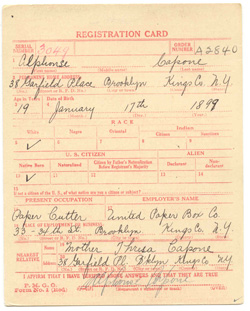http://www.loc.gov/pictures/search?st=grid&co=wwipos
During World War I, the impact of the poster as a means of communication was greater than at any other time during history. The ability of posters to inspire, inform, and persuade combined with vibrant design trends in many of the participating countries to produce thousands of interesting visual works. The Library of Congress Prints & Photographs Division makes available online approximately 1,900 posters created between 1914 and 1920. Most relate directly to the war, but some German posters date from the post-war period and illustrate events such as the rise of Bolshevism and Communism, the 1919 General Assembly election and various plebiscites.
The majority of the posters were printed in the United States. Posters from Australia, Austria, Belgium, Canada, Germany, Great Britain, Italy, the Netherlands, and Russia are included as well. The posters range in style from anonymous broadsides (predominantly text) to graphically vibrant works by well-known designers. The Library acquired these posters through gift, purchase, and exchange or transfer from other government institutions, and continues to add to the collection. (source: www.loc.gov)
 http://www.archives.gov/atlanta/wwi-draft/
http://www.archives.gov/atlanta/wwi-draft/
The 24 million World War I Draft Registration Cards in the custody of the National Archives at Atlanta provide an invaluable resource for academic researchers and genealogists. All males in the United States, born between the years 1872 and 1900, were required by law to register for the draft throughout 1917 and 1918. This series of records includes cards from all 50 states and Puerto Rico. The answers provided to the questions on the cards typically reveal details about where a man lived, his occupation, race, immigration status, and in many cases his place of origin and nearest relative. The following selection presents a unique snapshot of what is available in this extensive collection.
President Woodrow Wilson's 14 Points (1918)
 http://www.ourdocuments.gov/doc.php?doc=62
http://www.ourdocuments.gov/doc.php?doc=62
In this January 8, 1918, address to Congress, President Woodrow Wilson proposed a 14-point program for world peace. These points were later taken as the basis for peace negotiations at the end of the war.
American Leaders Speak: From War to Normalcy



http://memory.loc.gov/ammem/nfhtml/nfexww1.html
The Nation's Forum Collection of sound recordings preserves the voices of American leaders from the start of the twentieth century. The idea originated with St. Louis attorney and promoter of the arts Guy Golterman after a visit to the Library of Congress. He later commented: "As I looked at the facsimile of Washington's farewell and the original of Lincoln's Gettysburg address, I profoundly wished that the vitality of their voices could have been preserved."
The bulk of this collection from the Montana Memory Project consists of WWI army enlistments, organized into groups by surname. The collection also includes marines, marine officers, and nurses, as well as dishonorable discharges, fraudulent enlistments, and enemy aliens. This card file is part of the Montana Adjutant General's Office Records 1889-1959 (RS 223).
The collection contains personal, family, and official correspondence, White House executive office files, drafts and proofs of books, articles, speeches, academic lectures, scrapbooks, shorthand notes, and memorabilia dating from 1786 to 1957 with the bulk of material falling in the period between 1876 and 1924.
In January of 1917, British cryptographers deciphered a telegram from German Foreign Minister Arthur Zimmermann to the German Minister to Mexico, von Eckhardt, offering United States territory to Mexico in return for joining the German cause. This message helped draw the United States into the war and thus changed the course of history.

http://research.archives.gov/description/302022
The English translation of the cipher telegram, from Arthur Zimmermann, German Foreign Secretary, to Heinrich von Eckardt, the German Ambassador in Mexico, appears in a telegram from Walter H. Page, American Ambassador in Great Britain, to Robert Lansing, American Secretary of State.